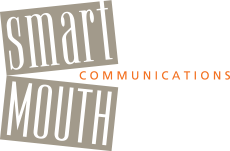So, let me guess what you’ve been doing when you prepare to speak: You crack open your laptop, create a new Word document, and you begin writing a magnum opus. You choose every word carefully, spending quite a bit of time creating pages of brilliant, gorgeous prose that will become your talk. Am I close? Probably. Is there a problem with that? Typically, yes.
All too often, what writes and reads as perfection to your eyes isn’t equally speakable as perfection for your mouth. All too often, well-written talks will sound like what they are … essays. And all too often, you, the speaker, will find yourself so committed to your beautiful words, sentences and paragraphs that you either 1) read from the paper, eyes down, and lose connection with your audience; or 2) you try to balance reading with audience connection and you end up flustered because you lose your place or leave something out when you look up.
What to do then when you prepare to speak? Crack open that laptop, but talk while you type. Test yourself by reading out loud what you wrote to make sure the sentences are deliverable versus just readable. Hint: if they’re deliverable, they’re usually short and crisp, without a lot of clauses and punctuation. Try bullet points, and trust yourself to fill in around those well-chosen points while you’re speaking.
However, if you are someone who absolutely has to have a full-text speech in front of them, then make sure you give yourself a hall pass if you end up deviating from your beautiful script; you are unlikely to deliver exactly what you wrote. Even folks with bullet points deviate. Deviating is okay, because it’s usually a sign that you are staying present with your audience. And the audience is, after all, what it’s all about!
- New Agey Advice for Nervousness - November 3, 2022
- Your Passion Can Go a Long Way Toward Building Connection - October 10, 2022
- Keep stage fright a private matter while you’re speaking on a public stage! - August 11, 2022



